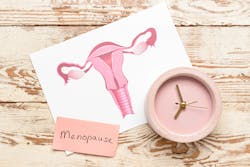Hormone therapy experiences vary by race among women in menopause
A new study on women across the United States has found that hormone therapy experiences vary dramatically by races among women experiencing symptoms of menopause. The results were published on October 19 in Menopause.
The Study of Women’s Health Across the Nation (SWAN) is a longitudinal, epidemiologic study seeking to understand how the physical and social changes experienced by women in mid-life and older affect their health and wellbeing as they age, including their experiences during menopause.
Menopause can be accompanied by a number of uncomfortable symptoms that impact overall quality of life, including hot flashes, night sweats, vulvovaginal discomfort and urinary issues. In addition to the established improvements in symptoms seen with hormone therapy, women often seek out alternative medical therapies with unproven benefits. In the current study, the researchers examined data compiled from surveys of women focused on menopause symptoms and treatment options, including hormone therapy, complementary alternative medicine treatments and no treatment at all.
Overall, white women reported the highest rates of hormone therapy use compared to women of other ethnicities, and said they experienced better quality of life when compared to white women who didn’t use any treatments. In contrast, Black and Hispanic women reported the lowest rates of hormone therapy use. Black and Chinese women who used hormone therapy actually reported reduced quality of life compared to those who used no treatments.
It is not clear why, exactly, these differences are seen. But the researchers believe it may have to do with patterns in how physicians tend to prescribe hormone therapy, in addition to cultural differences in preferences.

